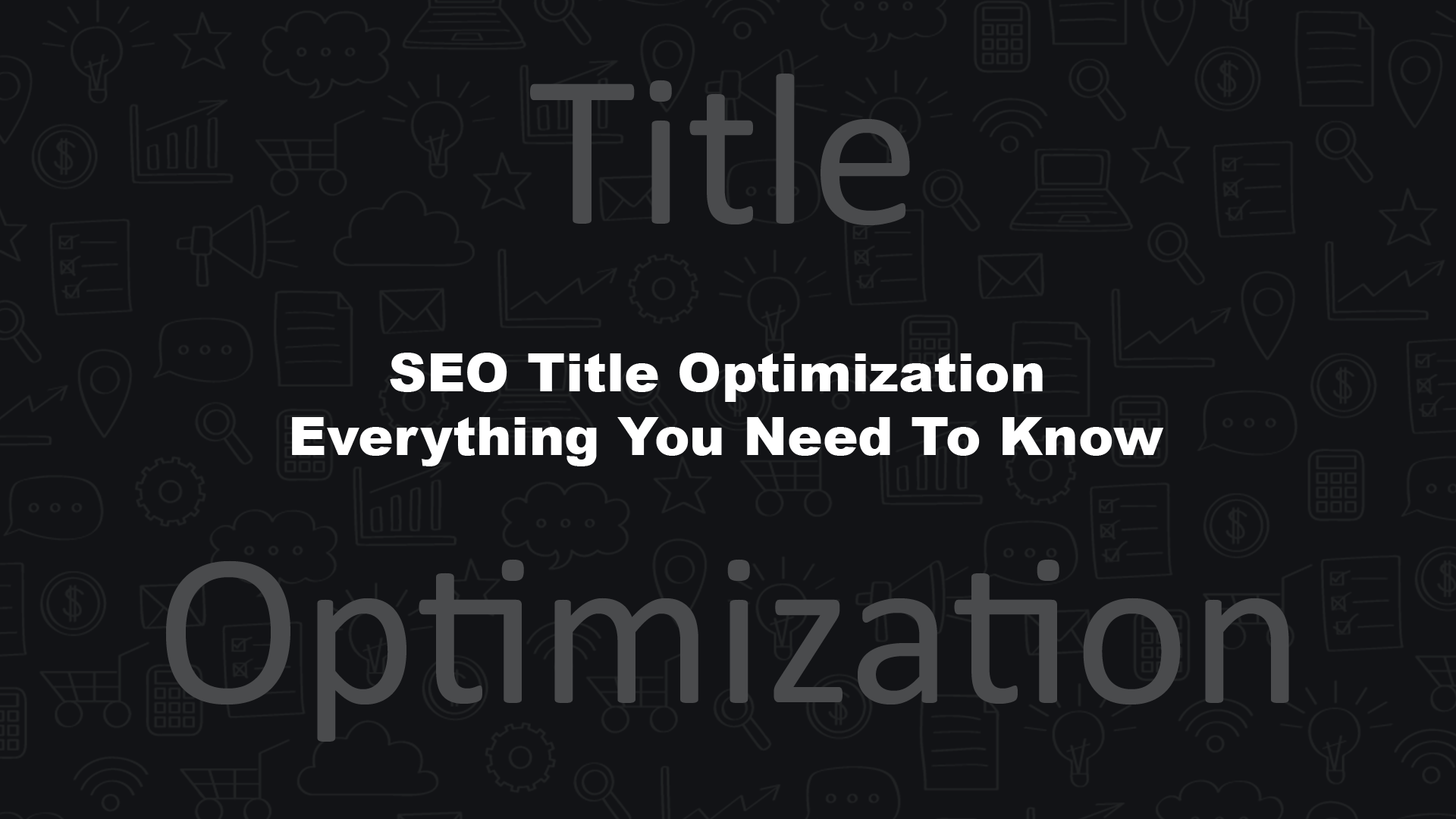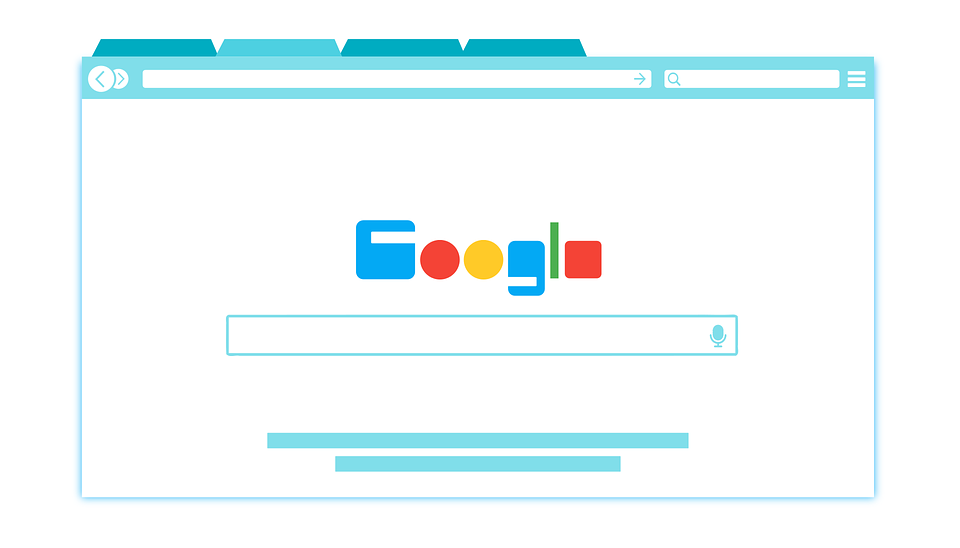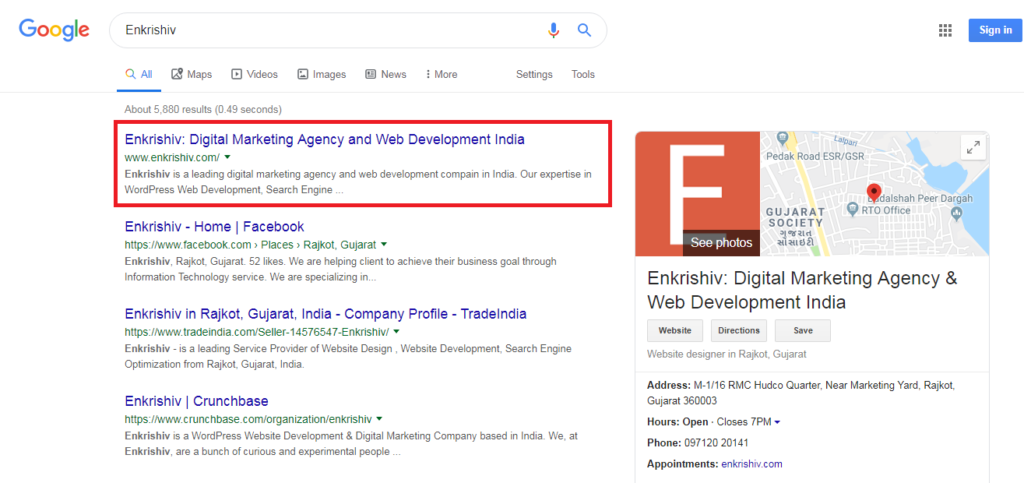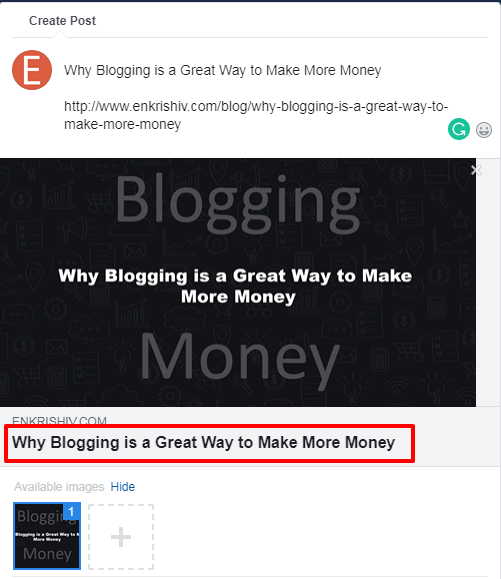SEO Title Optimization – Everything You Need To Know

Even before clicking on any link, the title is only one thing that catches readers attention. Any well-written title has the power to grab the interest of the reader.
A strong SEO is a combination of many factors. Here we talk about SEO title optimization which is an important factor of SEO according to Google’s guidelines. Having strong, relevant and clickable title increase click-through rate and overall traffic.
You make come with many different names of it such as SEO title, meta title, page title and most popular title tag. In a simple term, the title is given to each of the pages. Just like the title of any film or book attracts the most, page title also work in the same way.
To rank high in SERPs, you need to optimize your page title. Based on the title tag, search engines use to determine whether your page is relevant or not to search query. So, if you want to boost your SERPs ranking you have to pay attention to SEO title optimization.
What Is A Title Tag?
On the search engine, result pages (SERPs) title is the main part as it represents your website on it. It shows up in blue color, in bigger font than everything else on SERPs, and is hyperlinked back to your website.
As it names suggests, it is often used to let search engines and people know what the page’s content is all about. Title tags are the primary source of the first impression of any webpage.
Technically, A title tag is the HTML element which is used to specify the title of any webpage. In the HTML code of a webpage, the title appears as
<head>
<title> Your Title Goes Here </title>
</head>If you are using content management systems like WordPress and have an SEO plugin, you can skip the HTML code. You can add the title by filling the field which is labeled as title or title tag in your plugin.
Where Does The Page Title Appear?
Web Browser Tabs
The page title is displayed on the tabs of your web browser. An eye-catching title is useful when a visitor has multiple tabs open. It acts as a placeholder for that user. Write a title in such a way that remind visitors about the content of the page simply and memorably.

Search Engine Result Pages (SERPs)
As we have mentioned, title tags appear on search engine pages that include Google, Yahoo, Bing, DuckDuckGo, etc.
On Google, title tag appears up as a big, blue text with the clickable link above a short meta description.
It is the most important place as you can get most of the traffic to your website from it. So frame your SEO title example which can act as the headline and urge searchers to click on your result.

Social Media Post
When someone shares your page on social media, you will see the little previews of that page. This one also contains the title tag of your webpage and let people know what the page is all about.
Here is another reason that you want the page title to clearly describe the content of your webpage.
Some social networks platforms will allow you to customize your title tag for that particular platform only. An attractive title tag helps to increase more click-through rate.

Tips To Write Title Tags
Here are some tips for SEO title tag optimization.
Use The Right Keywords
Find the most relevant keywords as per your brand and niche. Side by side you can also competitors keywords which are ranking well.
With the right keywords, title tags can help you get better search engine ranks. According to research, keywords closer to the beginning have more impact on better ranking.
Adding into that user experience research shows people scan the first few words as a headline. Here is the SEO title example:
Keyword-product
category-brand name
Don’t Overdo Keywords
Title tags can do wonder for your site ranking when the right keywords are optimized. Put in first your most relevant keyword in the title but don’t overdo it.
Google can easily identify keyword stuffing and title may change if it feels you are using different variations of keywords in it.
Avoid titles which have just repeat a variation of the same keywords. These titles create a bad user experience and also make a negative impact on your search engine ranking.
Make The Right Title Tag Length
Generally, search engines display 50-60 characters of page’s title. Because of this, the length of the SEO title tag is a vital part.
Try to write title tag about 50 characters long including spaces. However, if your title tag length is longer than 60 characters then there are chances of it becoming cut off in the middle.
Fit important keyword in the first place as search engines are least likely to chop off that part. Also, stay away from capital letters as they will utilize more character spaces compared to lower case letters.
Write A Unique Title
Most pages on your sites are different so you should distinguish them with their titles. Unique titles help search engines and people understand that your content is unique and valuable.
Avoid generic title name such us Home, a New Page, Product Page, Profile, etc in SEO title example. Also, avoid duplicate title tag as it creates misunderstanding and put negative impact.
This is generally relevant for an e-Commerce site as it has similar product pages. Be sure to give each page as unique a title as possible to increase click-through rates.
If any site has hundreds and thousands of pages, it is difficult to create a unique title for them. But with the modern content management system and templates, you can create a data-driven unique title for each page.
Use Your Brand Name
If you have a strong and well-known brand then adding its name in the title will boost your click-through rates. It is always advisable to put the brand name at the end of the title tag.
If users have recognized your brand then they consider you as a trustworthy and reliable source of information.
Write For Your Customers
While creating the SEO title tag, It’s important to think about the entire user experience. Make your title most attractive which get clicks from visitors who are likely to find your content valuable.
The title tag is the first interaction of any new visitor with your brand. It should convey a clean, clear and positive message as possible.
Use Action Words
Having action words or action verbs can help entice users to click through. Examples of action words you can use are found, learn, download, get, boost, make, etc.
Whenever you use this kind of verbs in SEO title example, you give your prospective visitor to look forward to something than the content of the page. This is one of the most effective ways of title tag optimization.
Conclusion
Title tags are short but more powerful. Take some time to think about the best words you can use to communicate with the search engines and potential customers. Keep the above things in mind and make the relevant and eye-catching title to boost your CTR and Ranking.
Bharat Mamtora is an online marketer, graphic designer, avid tech-savvy blogger. He is associated with the Digital Marketing Company. He loves to write about Search Engine Optimization, Social Media Optimization, New Marketing Tools, WordPress Development, and much more. Apart from writing, he loves reading books & meditation.
